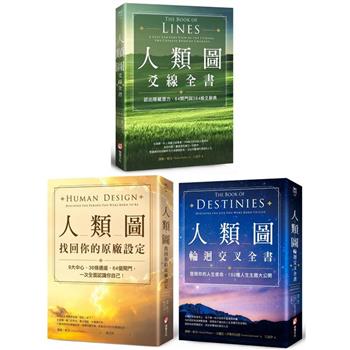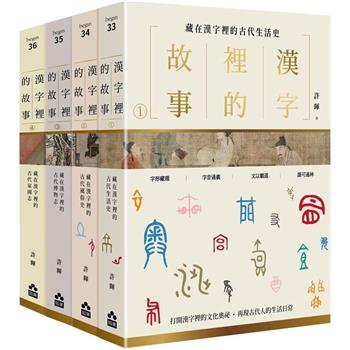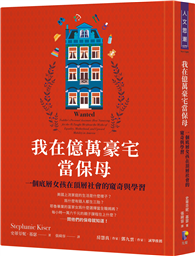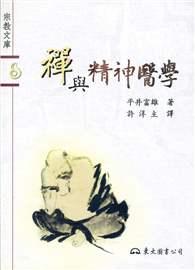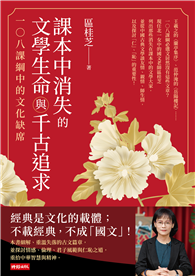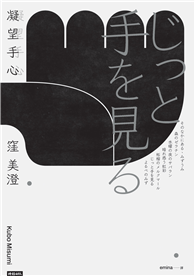This volume tells the story of the importance of the Confucian traditions and why and how Confucian texts were reinterpreted within the different ambiances and contexts around East Asia. The vitality of East Asian Confucianisms stems from the desire of Confucian thinkers to interpret the core values of the Confucian classics in line with conditions and changes in their own times and location. Although all the interpretations that were advanced in China, Korea and Japan were specific to their own era, they do still share some themes in common. This book reveals that “East Asian Confucianisms” forms an intellectual community that is transnational and multi-lingual and has evolved in interaction between Confucian “universal values” and the local conditions present in each East Asian country.
| FindBook |
有 6 項符合
East Asian Confucianisms:Texts in Contexts的圖書 |
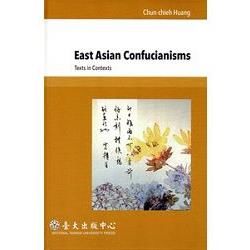 |
East Asian Confucianisms:Texts in Contexts 作者:Chun-Chieh Huang(黃俊傑) 出版社:國立臺灣大學出版中心 出版日期:2015-06-24 語言:繁體書 |
| 圖書選購 |
| 型式 | 價格 | 供應商 | 所屬目錄 | 二手書 |
$ 199 |
二手中文書 |
$ 651 |
中文書 |
$ 651 |
中國哲學 |
$ 666 |
教育學習 |
$ 666 |
宗教命理 |
$ 666 |
教育學習 |
|---|
| 圖書館借閱 |
| 國家圖書館 | 全國圖書書目資訊網 | 國立公共資訊圖書館 | 電子書服務平台 | MetaCat 跨館整合查詢 |
| 臺北市立圖書館 | 新北市立圖書館 | 基隆市公共圖書館 | 桃園市立圖書館 | 新竹縣公共圖書館 |
| 苗栗縣立圖書館 | 臺中市立圖書館 | 彰化縣公共圖書館 | 南投縣文化局 | 雲林縣公共圖書館 |
| 嘉義縣圖書館 | 臺南市立圖書館 | 高雄市立圖書館 | 屏東縣公共圖書館 | 宜蘭縣公共圖書館 |
| 花蓮縣文化局 | 臺東縣文化處 |
|
|
圖書介紹 - 資料來源:博客來 評分:
圖書名稱:East Asian Confucianisms:Texts in Contexts
內容簡介
作者介紹
作者簡介
Chun-Chieh Huang(黃俊傑)
Prof Dr Chun-chieh Huang is Dean of the Institute for Advanced Studies in Humanities and Social Sciences, National Taiwan University, and Research Fellow at the Institute of Chinese Literature and Philosophy, Academia Sinica, Nangang, Taiwan.
Chun-Chieh Huang(黃俊傑)
Prof Dr Chun-chieh Huang is Dean of the Institute for Advanced Studies in Humanities and Social Sciences, National Taiwan University, and Research Fellow at the Institute of Chinese Literature and Philosophy, Academia Sinica, Nangang, Taiwan.
目錄
Preface
Prologue
Part Ⅰ New Perspectives on East Asian Confucianisms
Introduction
Chapter One: On the Relationship between Interpretations of the Confucian Classics and Political Power in East Asia: An Inquiry into the Analects and Mencius
Chapter Two: On the “Contextual Turn” in the Tokugawa Japanese Interpretation of the Confucian Classics: Types and Problems
Chapter Three: East Asian Conceptions of the Public and Private Realms
Chapter Four: The Role of Dasan Learning in the Making of East Asian Confucianisms: A Twenty-First-Century Perspective
Part II Confucian Texts in East Asian Contexts
Introduction
Chapter Five: Zhu Xi’s Comments on Analects 4.15 and 15.3, and His Critics: A Historical Perspective
Chapter Six: The Reception and Reinterpretation of Zhu Xi’s Treatise on Humanity in Tokugawa Japan
Chapter Seven: The Confucian World of Thought in Eighteenth-Century East Asia: A Comparative Perspective
Chapter Eight: Itō Jinsai on the Analects
Chapter Nine: Shibusawa Ēichi on the Analects
Chapter Ten: What is Ignored in Itō Jinsai’s Interpretation of Mencius?
Chapter Eleven: Yamada Hōkoku on Mencius’ Theory of Nurturing Qi: A Historical Perspective
Chapter Twelve: The Idea of Zhongguo and Its Transformation in the Contexts of Early Modern Japan and Contemporary Taiwan
Epilogue
Appendix: Some Observations on the Study of the History of Cultural Interactions in East Asia
Indexes
Bibliography
Index of Names
Index of Terms
Prologue
Part Ⅰ New Perspectives on East Asian Confucianisms
Introduction
Chapter One: On the Relationship between Interpretations of the Confucian Classics and Political Power in East Asia: An Inquiry into the Analects and Mencius
Chapter Two: On the “Contextual Turn” in the Tokugawa Japanese Interpretation of the Confucian Classics: Types and Problems
Chapter Three: East Asian Conceptions of the Public and Private Realms
Chapter Four: The Role of Dasan Learning in the Making of East Asian Confucianisms: A Twenty-First-Century Perspective
Part II Confucian Texts in East Asian Contexts
Introduction
Chapter Five: Zhu Xi’s Comments on Analects 4.15 and 15.3, and His Critics: A Historical Perspective
Chapter Six: The Reception and Reinterpretation of Zhu Xi’s Treatise on Humanity in Tokugawa Japan
Chapter Seven: The Confucian World of Thought in Eighteenth-Century East Asia: A Comparative Perspective
Chapter Eight: Itō Jinsai on the Analects
Chapter Nine: Shibusawa Ēichi on the Analects
Chapter Ten: What is Ignored in Itō Jinsai’s Interpretation of Mencius?
Chapter Eleven: Yamada Hōkoku on Mencius’ Theory of Nurturing Qi: A Historical Perspective
Chapter Twelve: The Idea of Zhongguo and Its Transformation in the Contexts of Early Modern Japan and Contemporary Taiwan
Epilogue
Appendix: Some Observations on the Study of the History of Cultural Interactions in East Asia
Indexes
Bibliography
Index of Names
Index of Terms
|


